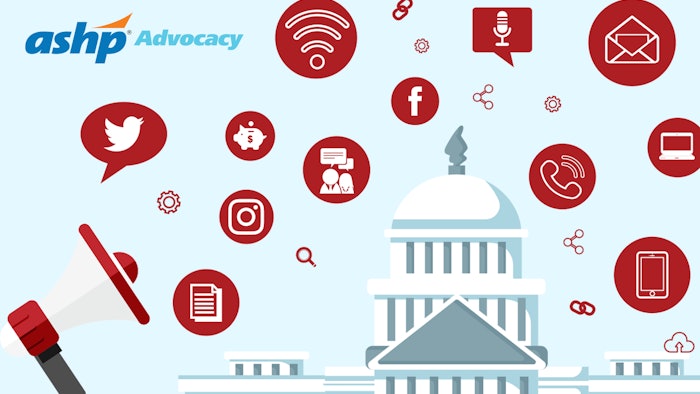States Pave the Way for Practice Advancement
New laws significantly expand patients’ access to care.

Tremendous strides have been made over the last 18 months to advance pharmacists’ provider status, with the passage of a number of state laws related to scope of practice as well as the federal government’s authorization allowing pharmacists to order and administer select therapeutics under the Public Readiness and Emergency Preparedness (PREP) Act.
These state and federal actions, which have significantly expanded patients’ access to care, were among the advocacy priorities discussed during Tuesday’s session “Engaging Federal and State Policymakers: Key Issues for Health-System Pharmacy,” led by members of ASHP’s government relations team.
ASHP has made deliberate strategic investments in supporting states’ efforts to advance provider status legislation, which is one of the “big near-term opportunities for advancement of provider status,” said Tom Kraus, vice president of government relations at ASHP.
Kyle Robb, state policy and advocacy associate at ASHP, said state governments have increasingly called on pharmacists to provide patients with access to essential healthcare services, from COVID-19 testing to patient counseling and to administration of certain drugs.
 Tom Kraus and Kyle Robb
Tom Kraus and Kyle Robb
Forty state Medicaid programs recognize pharmacists as providers for at least one billable service and all 50 states have expanded pharmacists’ ability to provide care, Robb said. However, Medicare has not kept pace with advances in state scope of practice and Medicaid reimbursement. As a result, Medicare beneficiaries have less access to the care pharmacists are licensed to provide, even when services are within a pharmacists’ scope of practice, Robb added.
Nonetheless, there have been a number of state scope of practice and reimbursement victories in 2021:
- At least 11 states have passed laws expanding pharmacists’ immunizing scope of practice.
- Four states expanded pharmacists’ vaccinating scope of practice to be more permissive than the federal PREP Act waiver.
- Twenty-two states permit pharmacists to independently order and administer immunizations.
“The end goal is that when the public health emergency does expire, we don’t see any contraction in scope of practice,” Robb said, adding that the year has brought many gains, “but clearly the job is not done.”
The pharmacy profession has also seen progress in areas unrelated to the pandemic. Seven states passed laws allowing pharmacists to order and dispense hormonal contraceptives, six states passed laws allowing pharmacists to order and dispense medications for HIV prevention, and three states passed laws to expand the board of pharmacy’s rulemaking authority to establish statewide pharmacist prescribing protocols.
“I don’t think we can overstate how impactful those state developments are for pharmacist recognition and pharmacists’ provider status,” Kraus said. “Each one of those victories is impactful in its own right. Every time that a state takes a step to expand pharmacists’ scope of practice or expand reimbursement for those pharmacy services, it puts pressure on other states to do the same because they want to have the same access to care that their neighbors do.”
Similarly, every time a state takes a step toward provider status, it puts pressure on the federal government to expand federal pharmacist provider status, Kraus said.
In concluding remarks on the provider status portion of the session, Kraus reflected on the advances made in 2021, particularly with PREP Act amendments that allow pharmacists to order and administer select COVID-19 therapeutics, including subcutaneous monoclonal antibodies.
“This is the first time that I’m aware of in history where we have had the federal government reach into the states and say that all 50 states, regardless of their scope of practice, must allow pharmacists to provide certain services in response to COVID-19 — that includes vaccines, that includes testing, pediatric vaccines, therapeutics — not just administering but ordering,” Kraus said. “That’s huge and that really strengthens our other arguments around pharmacist recognition and provider status. I don’t think we can overstate the impact of the past year and a half in progress in pharmacy scope of practice and provider status.”’
Tuesday’s session also included a discussion of other federal advocacy priorities and the current political climate, protection of the 340B Drug Pricing Program, efforts to eliminate X-waivers to increase the number of providers who can prescribe medications for opioid use disorder, white bagging, biosimilars, drug shortages, and compounding.
Learn more about ASHP’s advocacy efforts related to these key issues.











